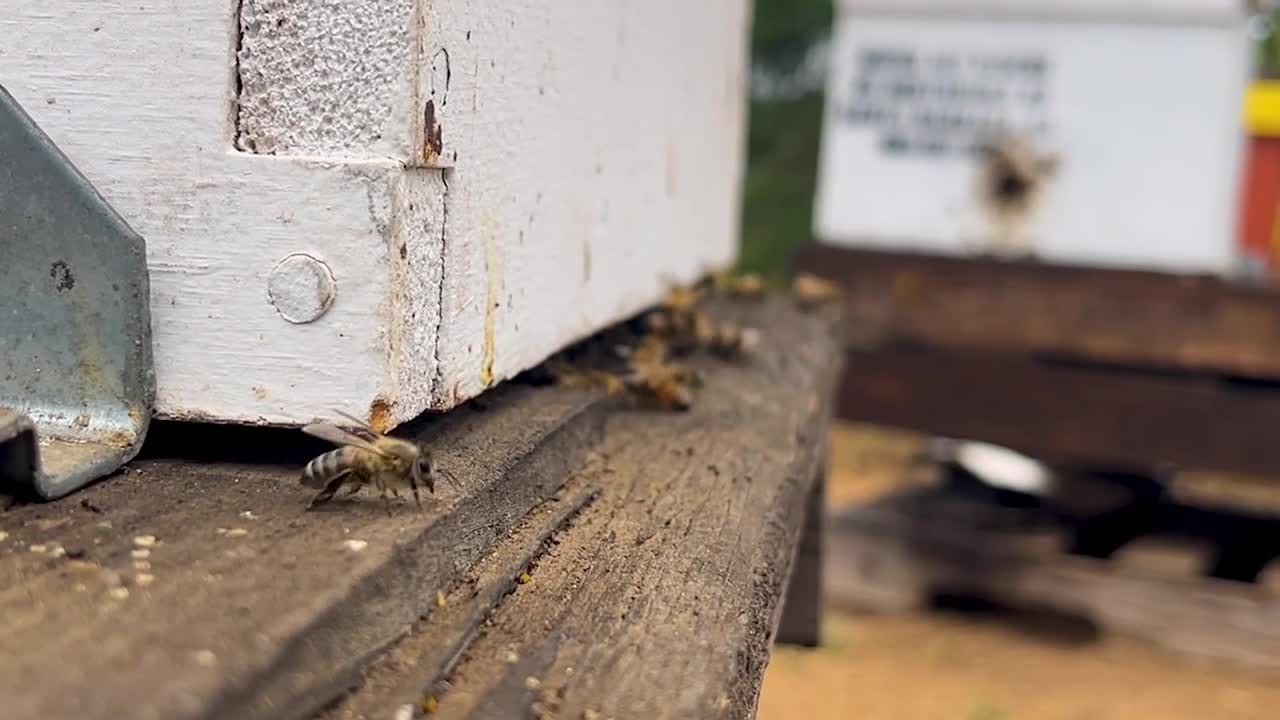Nicholas Wigle has been beekeeping on the Central Coast for 16 years. He says rising overhead costs and an influx of imported honey are driving local beekeepers out of business.
"The bees are out here pollinating our food, pollinating our flowers, doing all this work. The reality is that without them, we’re all in a lot of trouble," Wigle said.
This year’s Santa Barbara County crop report reveals a sharp decline in bee registrations, from more than 18,000 in 2023 to just 7,500 in 2024.
Deputy Ag Commissioner Matthew Maiten attributes this trend, in part, to coastal habitat loss, housing, climate, and pest control.
"The housing is one of them, you know, climate — there are many different factors," Maiten said.
"When we lose any local food source, any part of this system, everything else is affected," Wigle said.
He says this inspired him to start a bee rescue and removal service.
"We did 700 live bee removals last year," he said, adding that those removals saved around 10,000 bees per hive.
Wigle's team removes feral bee hives from homes and businesses, relocating them where they're needed most.
"I thought, if I could take those bees that were getting exterminated, save them, and then put them back into our agricultural system and get them back to, you know, fill back up beekeepers' hives, I'd be able to do something," Wigle said. "Saving the bees is important, but it's all of the pollinators, all of the insects, because we won't survive without them."




